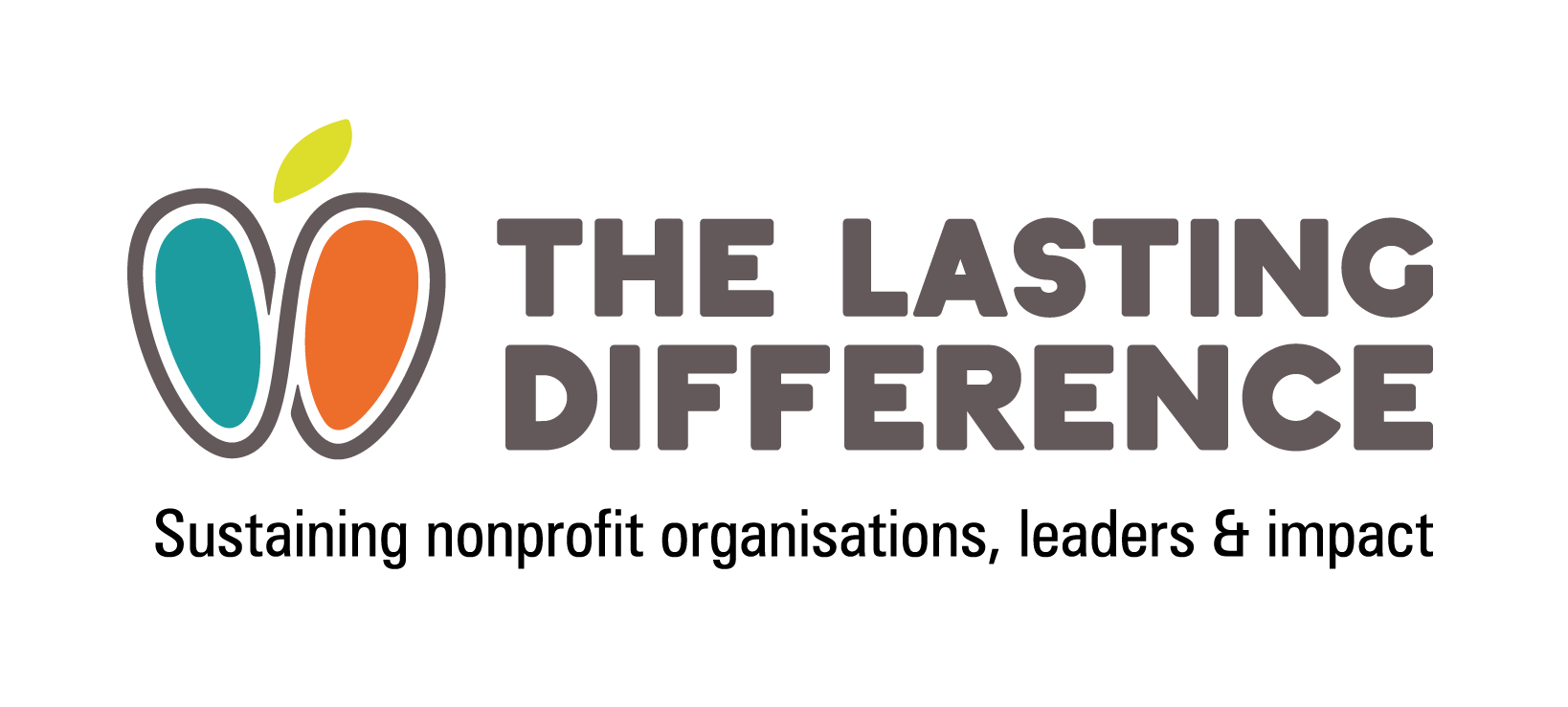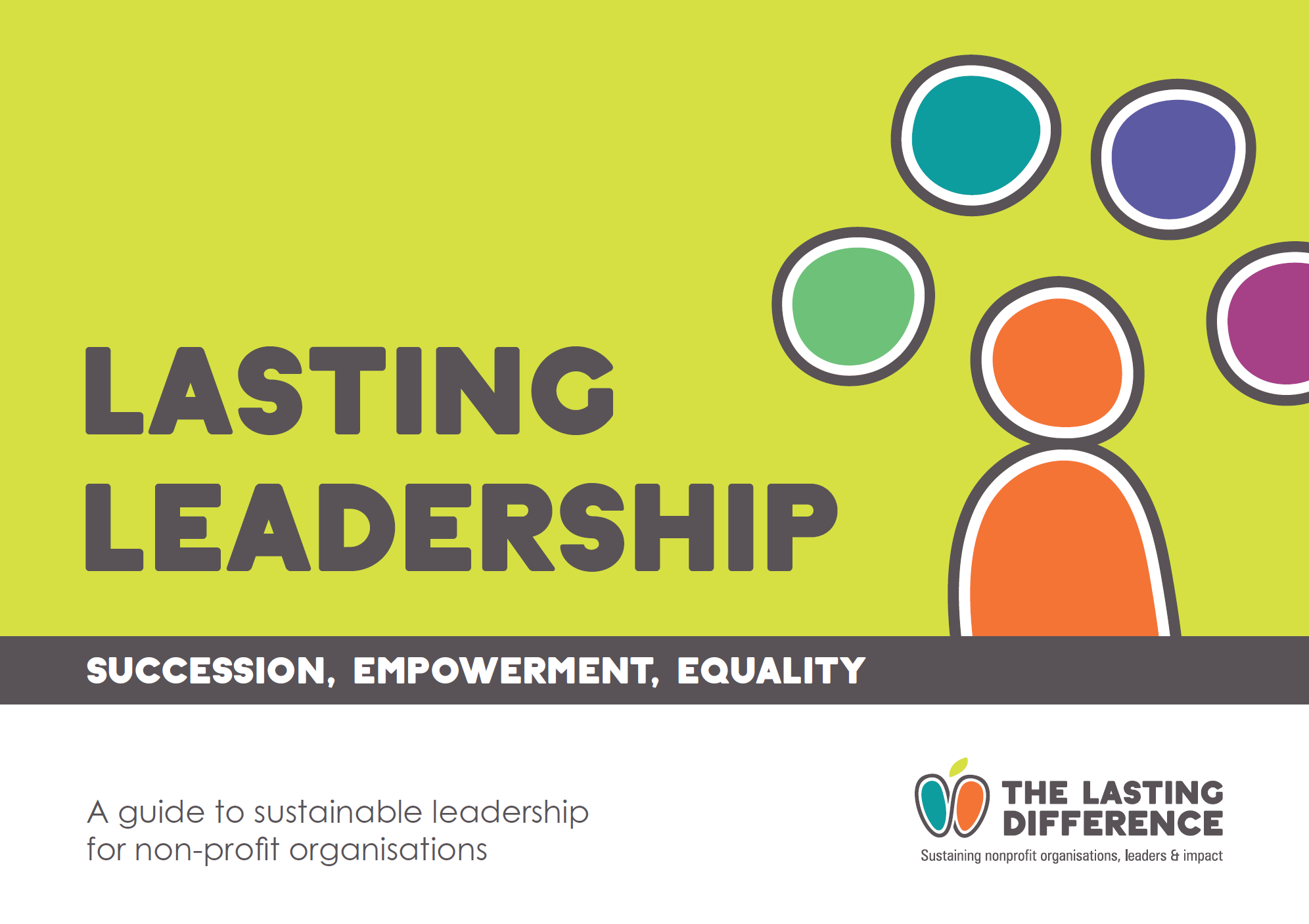
There is no organisational sustainability without sustainable leadership.
There is a wealth of information on leadership styles, models and approaches – but far less exists on the topic of leadership sustainability. Lasting Leadership® changes this.
Sustainable leadership requires organisations and their leaders to find new responses to the complex challenges they face. The ideas in the Lasting Leadership® Guide are easy to follow, though they challenge the ways we have been brought up to think about organisation, control and influence. These assumptions run deep in our society and organisational systems. It takes trust to promote ownership, participation, agency and self-direction.
The Lasting Leadership Guide covers sustainable leadership in four separate publications, one for each of the key capabilities required. Scroll down for an overview of these and to download your copies. Join our mailing list to sign up for regular updates with additional resources and inspiration (usually 6-8 mailings per year).
With straightforward definitions, practical tools and action plans, start your journey towards sustainable leadership here.
Lateral leadership
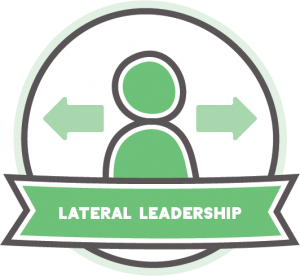
There is leadership in every corner of your organisation. But whose permission do people need to do the right thing?
Lateral leadership involves people taking ownership, autonomy, and accountability regardless of their role or place in the hierarchy. This might sound straightforward in theory. In practice, capacity building requires time, commitment from all levels, a willingness to change – and leaders being prepared to let go.
Leadership is not about creating followers. It is about equipping others with the abilities and opportunities to exercise initiative and agency. Leadership is more than a job title or positional authority – it’s the ability to spot need, identify opportunities and take responsibility. Devolving leadership acknowledges that everyone in an organisation has knowledge, experience, skills and enthusiasm which contribute to the organisation’s goals – given the opportunity. However, not everyone wants or feels ready to step up – sometimes people need more time and/or different types of support to feel comfortable.
Traditional hierarchical control inhibits the development of shared leadership and authority – organisational structures and processes need to evolve as agency and accountability develop. Shifting from a hierarchical structure to an adaptive and devolved culture requires a commitment to learning and adapting together, and a willingness to be comfortable with uncertainty as new processes evolve.
It takes the courage to question and be questioned, to hold others to account and to be held to account. Leaders must trust themselves to step back and trust their teams to step up. Teams must also trust that leaders will encourage and recognise their efforts.
Letting go can make managers feel their identity or competence are being challenged – if they share their authority, what is their role?
In lateral leadership, the role of leaders is to create other leaders.
Download the Lateral Leadership guide to find out more. Now updated with additional practical tools:
- Delegation and devolved leadership – interactive template.
- A special ‘how to’ guide for organisational development programmes that unleash the transformative power of Lateral Leadership.
- A unique template for commissioning and overseeing lateral leadership programmes
Succession planning
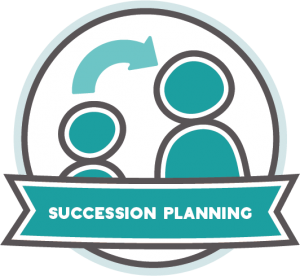
Succession is inevitable. Success isn’t.
It’s not a matter if a succession plan will be needed, but when. Succession planning ensures your organisation is in good shape for planned or unplanned succession, increasing the chances of post-succession survival by developing capacity within the organisation. It’s a frame of mind, a process capacity building, developing shared ownership and delegating effectively. It is not about identifying and grooming successors.
Succession and knowledge management
Good succession planning considers the knowledge that is critical to the organisation. Internally this involves developing and managing organisational knowledge e.g. of processes and of the strategic environment such as policy developments and funding arrangements. Externally it involves sustaining key relationships. Succession planning helps to manage the risks involved in these relationships, such as key individuals moving on from their posts or organisations.
Succession planning helps improve organisational performance. It creates opportunities for teams to learn, share information and generate new ideas and ways of thinking. It builds ownership of solutions to tackle future challenges.
Having regular, open and honest discussions can help people feel more comfortable with succession and cope better when change happens. The organisation and its impact are bigger than any one person or role. Exploring and discussing what to sustain can help in developing sustainable leadership and preparing for the future. Find out more and start succession planning and knowledge management with the Lasting Leadership guide below.
Lasting Leadership Guide to Succession and Knowledge Management – demystifying two vital subjects in one guide, explaining the why, what, when and how. With straightforward templates, this guide strengthens succession planning, capacity building and strategy implementation.
Energy, focus, self-care

Create the world you want to be part of.
Taking time for self-care, mentoring and professional development are key challenges to sustaining leadership capacity.
The conditions for doing our best work are already known. They are possible to create in our organisations. But first we must give ourselves, and our teams, permission to break the cycle of constant stress and busyness. While the adrenaline and stress of leadership can seem heroic for a time, in the long run they lead to exhaustion, and discourage new leaders from joining the sector or stepping on into new roles.
We need to legitimise and talk about the essential nature of self-care and development – it is not a perk. However, unrealistic funding and management practices currently put unsustainable pressures on leaders and organisations. Commitment to, and investment in, self-care, learning and sustainable employment practices improve the wellbeing and development of sector leaders.
There is a prevailing narrative that the non-profit sector is ‘well-meaning’, underpaid and overworked. And whilst challenges do exist, this is only part of the story. The sector is a hugely innovative, professional and rewarding place to work, full of great employers. Change the narrative and attract people who are inspired by the possibilities of making a difference.
Download the Lasting Leadership Guide to Sustaining Energy, Focus and Self-Care to explore:
- Organisational responsibilities for self-care
- Individual practices
- Three special ways to think about sustaining your passion, replenishing energy and staying focused on what matters.
These topics are also covered in detail on our Lasting Leadership e-learning module. Contact us to join one of our regular intakes.
Leadership as an equalities issue
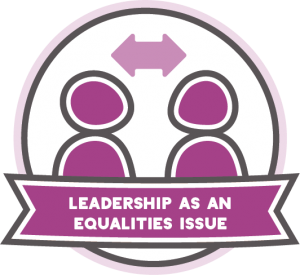
In a sector committed to social justice but which does not reflect our society, leadership is an equalities issue.
People shouldn’t experience the effects of prejudice and inequality in the workplace. Can people be themselves and live their values at work? Or do they have to conform and leave part of themselves at the door?
One day soon, we will look back on practices that are considered normal and be appalled at what was acceptable in early 21st century third sector workplaces. People shouldn’t have their decisions questioned, be spoken over, ignored or passed over for leadership opportunities because they don’t fit stereotyped views of what a leader is.
Addressing inequalities requires focused attention and sustained action if leadership in the sector is to be truly equal and diverse. Organisations don’t set out to exclude potential leaders, but good intentions aren’t enough, they must be followed through into action. Sustainable leadership requires organisations and leaders advocating for change, assigning resources and taking accountability for results.
The Lasting Leadership Guide to Equalities is out now! Download it here to help:
- Level the playing field: acknowledge and address structural barriers and power imbalances
- Ensure access: design work and leadership opportunities so they are inclusive and accessible to all
- Sustain meaningful change: embed equality, diversity and inclusion.
Introducing Lasting Leadership
Graeme Reekie explains where the guide came from, what informs it and what it contains.
The time challenge
Time is your most precious resource, but do you use it well? Do you spend it, save it or invest it?
The leadership myth
There’s a lot of nonsense spoken about leadership! It’s hard work, so sustainable leaders step back, think and take time to breathe.
The care paradox
Organisations that care for others and the environment don’t always care for themselves, their leaders or their staff.
The control paradox
The more you try to control, the more resistance you encounter. Sustainable leaders know when to step back, trusting others to step in and step up.
The equality paradox
Organisations that promote social justice and equality need to start reflecting those values in the way they are governed and led.
GET INVOLVED
Sign up for our occasional newsletter for new ideas and resources.
